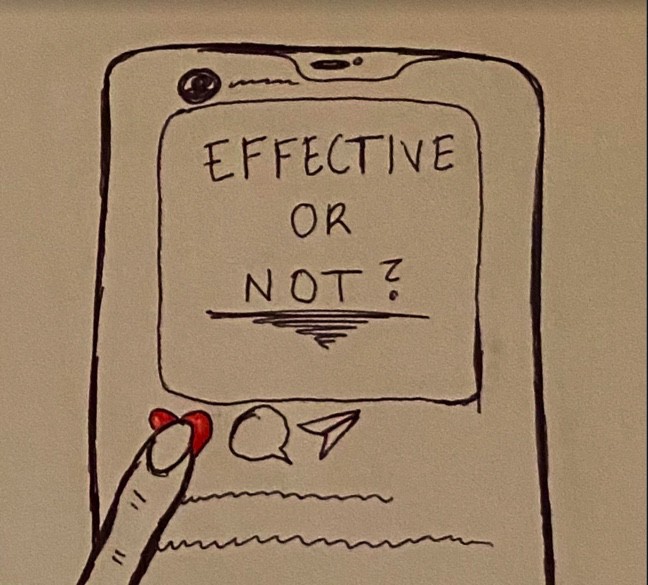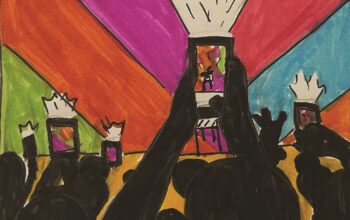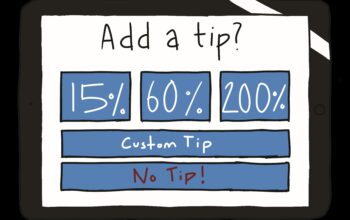
Since the development of advanced social media apps such as Instagram, Facebook, and Twitter, news and information travel a lot farther, and a lot faster. These social media apps, Instagram in particular, have been especially important to students. They are vehicles for information but have also become essential parts of our everyday lives in terms of entertainment and communication.
But this summer, a new use for social media emerged: social justice, awareness, and activism. This summer, hundreds of Roosevelt students took to posting important information on these subjects and reposting relevant content on their social media, specifically their Instagram stories. It has since become a way for students to stay engaged in national and international news, as well as Seattle and Roosevelt news, without having to read magazines, articles, or newspapers.
Instead, intriguing graphics, captivating images, and short and informative bullet points help grab the reader’s attention, pulling them in for quick thirty-second lessons on incredibly important topics. These accounts have the potential of reaching hundreds of thousands of people. For example, I reached out to multiple accounts, including ‘feministsocialist’ on Instagram who has gotten over 130,000 likes on a single post. Not only is it easy to post on Instagram – making a little icon or small graphic and captioning it takes only a few seconds – but it also reaches many people, and quickly.
In our own community, we saw the power of social media to bring awareness to social issues. This past summer, a group of Roosevelt students shared harmful opinions and said terrible things, including homophobic, racist, sexist, misogynistic, and anti-Semitic ideas and words, which prompted condemnation through mass postings and re-postings by people upset by this unfortunate and disgusting content.
Since those “exposings,” Roosevelt students have acknowledged that change needs to occur in our community and that these issues need to be confronted head-on. Social media became a way for students to air their grievances, talk about sensitive issues, and try to educate people on important matters that affect the lives of marginalized people.
Recently, however, some have begun to question whether social media activism is just performance – empty of meaningful content and devoid of the ability to make real change. Instead, these critics of social media argue that using these tools for social justice is actually just “virtue signaling,” where the only real beneficiary is oneself, and specifically one’s self-worth and ego. Virtue signaling is therefore an inherently negative term, describing a form of performative activism that has no substance.
However, many people are conflicted about whether or not these posts should be considered virtue signaling. Some people attend rallies and those who can’t share as many informative posts as they can. Who is to say one is real activism and the other is mere performance? I talked to Lilia from the Instagram account ‘activismandthat’ who told me a bit about why she decided to get into online activism. She said that social media is a “large platform with such a wide reach,” which makes it a perfect place to share your opinions. She told me that she regularly asks herself why she posts, and who her activism helps and harms. A lot of times, she says, there are fake-news accounts or satirical accounts created to spread misinformation and mock social justice leaders. This is where online activism becomes tricky. While there is a lot of important and good content circulating, it is just as easy to post negative and harmful content as it is to post thoughtful and truthful content. Lilia says that although she recognizes why it may be seen as virtue signaling, her methods of activism are such that she uses her platform and privilege to uplift the voices of people who don’t have those same platforms and privileges, instead of drowning them out.
In order to get to the root of this debate, we need to first think about how these posts interact and coexist with other forms of activism. According to the Cambridge English Dictionary, the definition of virtue-signaling is ‘an attempt to show other people that you are a good person, for example by expressing opinions that will be acceptable to them, especially on social media.’ As you can see, it isn’t really a thing to be proud of.
In my opinion, posting on social media is virtue signaling only when you have self-serving intentions. Otherwise, it’s pretty much the only thing anyone under the age of 18 can do, since we can’t vote and our personal finances usually aren’t large enough to make any sort of meaningful donation. But, social media is way more powerful than it seems. As long as you are using your platform to further education and discussions about important topics, and using your voice to uplift others, then I argue that posting isn’t self-service. You have to ask yourself questions like ‘why am I doing this,’ ‘what is the most important thing that I am gaining from this,’ and ‘am I lying to people about my motives.’
As Roosevelt students, the fact that we are youths makes it difficult to be political and social activists in a time where social justice is a very important topic. If a fifteen or sixteen-year-old wants to hold a rally, organize a protest, demand justice via petitions, how many people will actually take them seriously? On social media, however, where people under the ages of eighteen tend to be the dominant age group, their power is greater. According to The American Academy of Child and Adolescent Psychiatry, 90% of 13-17-year-old Americans were using at least one form of social media in 2018. We are able to post things, say things, do things, and gain recognition or support. While posting on social media may in a way be virtue signaling, it’s also one of the only ways that minors can get their messages across.
According to Pew Research, 72% of American teens use Instagram at least once a day. And that’s just one of the dozens of social media platforms that are available to us. Because of this, each social media post reaches multiple people, and whatever happens in the world outside social media becomes a ‘trending’ topic online. Movements like BLM, MeToo, climate change, and the support of various political candidates become the most important things on social media because they are what the rest of the world talks about, and activists can use this to generate more support for their ideas, which makes them more popular.
The flip-side of this, however, is that people can exploit these trending topics and use them for personal gain by using hashtags and other features that relate to these movements. One of the most heavily criticized trends this past summer was when hundreds of thousands of social media users took to posting a black square on their social media to stand in solidarity with black victims of police brutality. While in theory it was a good gesture, W Magazine described it as “an empty, performative gesture, rather than a legitimate act of solidarity with those who are suffering right now.” Posting a black square was entirely virtue signaling. It was an empty gesture that wasn’t actively anti-racist, but rather reluctantly apologetic. These sorts of actions contribute to a negative viewpoint on online activism.
The most important thing we can do is reflect upon our actions and our intentions. For me, making sure that I am not benefitting from what I am doing is important. We need to identify why we post these stories, and who benefits from them. But if we are truly trying to help spread awareness and educate people, then the main benefactor of our posts and reposts would be people seeking information.
To prevent ourselves from virtue signaling, actively seeking ways to engage in other forms of activism is important. Whether it’s donating to social justice organizations, going out and attending protests and rallies, or supporting the local businesses of marginalized people in order to show your support for a movement, these actions alongside posting and reposting on social media can go a long way, especially in benefitting a movement without seeking any personal gain.



